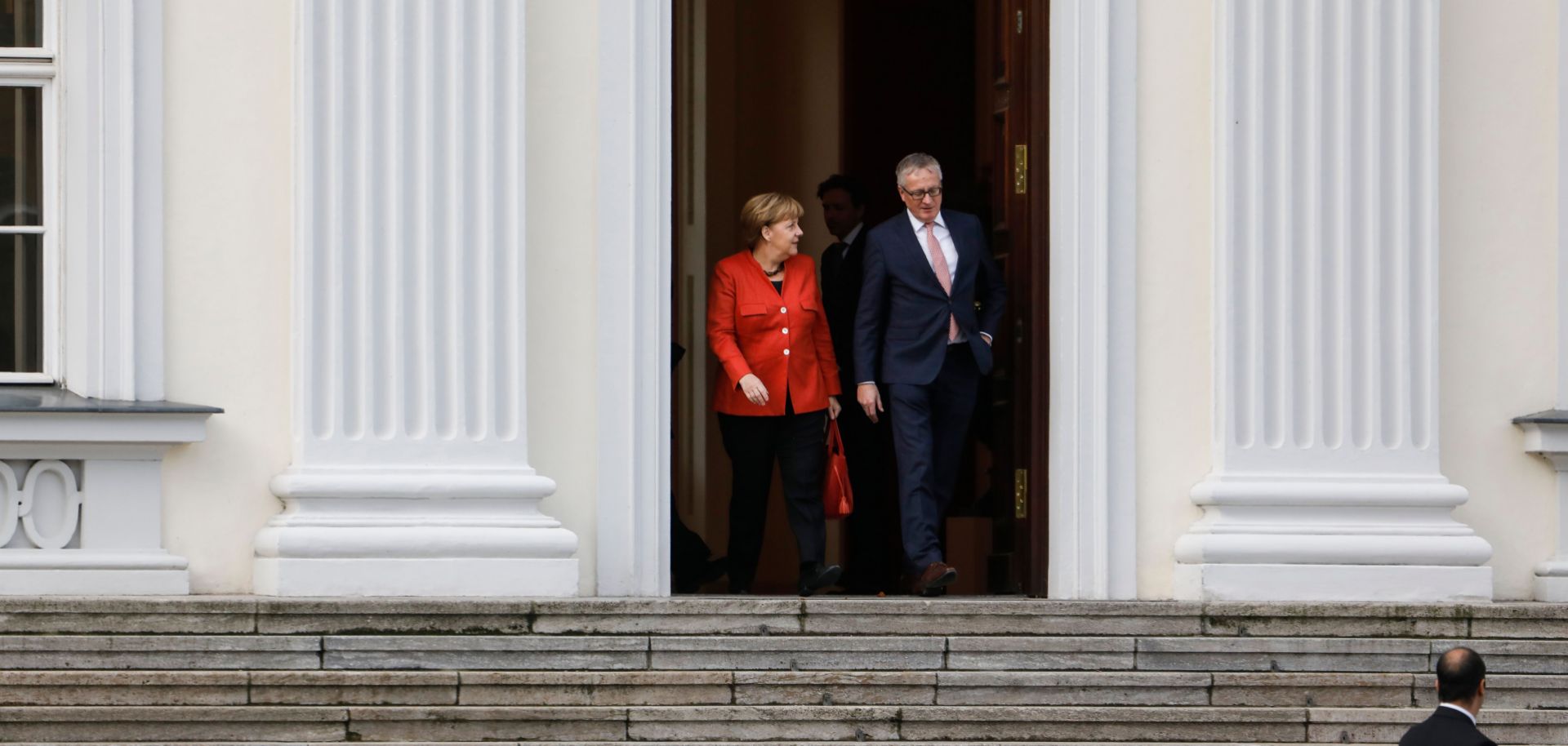ASSESSMENTS
When a Pillar of European Stability Crumbles
Nov 20, 2017 | 19:51 GMT

German Chancellor Angela Merkel leaves the presidential residence Bellevue Castle in Berlin where she met German President Frank-Walter Steinmeier on Nov. 20, 2017 after coalition talks failed overnight. Merkel was left battling for political survival after high-stakes talks to form a new government collapsed, plunging Germany into a crisis that could trigger fresh elections. Now, German parties and German President Frank-Walter Steinmeier must decide what to do next. The rest of Europe will be watching as well, waiting for a new government to be appointed in Berlin to resume talks about the future of the European Union.
(ODD ANDERSEN/AFP/Getty Images)
Subscribe Now
SubscribeAlready have an account?
